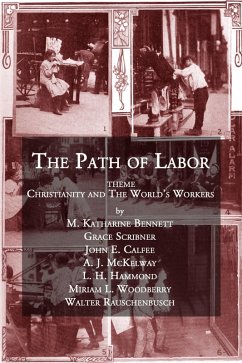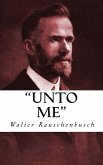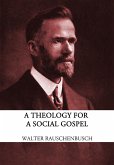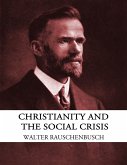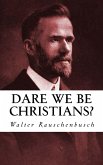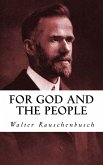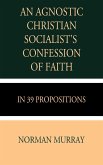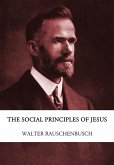FOREWORD
Those who labored with such desire and earnestness for the selection of a theme for the textbooks for 1918–1919, that should present not only a vital but a paramount issue to the church at this time when only great realities and issues claim serious thought, chose better than they knew when they elected Christianity and the World’s Workers.
It is generally conceded that the most decisive single factor in the world contest today is that of Labor. That there is always danger of over emphasis by any group having the power in the body politic is axiomatic.
It becomes therefore even more important now than when the theme was suggested (nearly two years ago) for our church constituency to address itself to such a study of economic relationships as shall open the way for a more complete understanding of the fundamental rights and facts involved, that a basis of thinking may be attained whereby the mutual welfare of all society may be advanced along the line of a Christian democracy.
“Christian” because the body of influence set in motion by Christ is the greatest spiritual force in the life of humanity, and upon it depends the world’s hope for redemption from oppression, injustice and war.
At the outset of our thinking on this theme we might profitably seek a definition of the term “Christianity,” for this word which calls so inspiringly to millions of people carries a sinister reminder of pogroms and persecutions to millions of others. The Rev. Dr. Charles Jefferson of New York City, says:
“Christianity is a large word, and it cannot be defined in a sentence for the reason that it is used in different meanings by different persons, and also by the same person on different occasions, and for different purposes. In one sense Christianity is the example and teaching of Jesus Christ. What he is and what he taught constitutes pure and undefiled Christianity. To know what Christianity is we must look at Jesus Christ and study his fundamental principles.
“But the religion of Jesus Christ has been in the world 1900 years and has worked itself out into a mass of institutions and ceremonies and creeds. All of these taken together are often called Christianity. For instance, the Christianity of the United States would include the whole universal church in the United States, with its worship and its achievements.
“While Christianity in the narrower sense must commend itself to everybody’s heart, Christianity in the larger sense has many imperfections, and is capable of many reformations and improvements.”
The rapidly increasing participation of women in all forms of industry is apparent to everyone. Mrs. Hilda Richards, Chief of the Woman’s Division of the Federal Department of Labor, says: “Assuming that the duration of the war is three years, it is safe to say that the increase of women in industry will be doubled and amount to three millions in this country.”
The Council of Women for Home Missions in sending forth this latest volume of its Mission Study Books does so with the eager hope that it may serve to interpret women in their various forms of service to each other, and be another influence in making Christianity the keystone of the changing social order.
Publication Committee.
Those who labored with such desire and earnestness for the selection of a theme for the textbooks for 1918–1919, that should present not only a vital but a paramount issue to the church at this time when only great realities and issues claim serious thought, chose better than they knew when they elected Christianity and the World’s Workers.
It is generally conceded that the most decisive single factor in the world contest today is that of Labor. That there is always danger of over emphasis by any group having the power in the body politic is axiomatic.
It becomes therefore even more important now than when the theme was suggested (nearly two years ago) for our church constituency to address itself to such a study of economic relationships as shall open the way for a more complete understanding of the fundamental rights and facts involved, that a basis of thinking may be attained whereby the mutual welfare of all society may be advanced along the line of a Christian democracy.
“Christian” because the body of influence set in motion by Christ is the greatest spiritual force in the life of humanity, and upon it depends the world’s hope for redemption from oppression, injustice and war.
At the outset of our thinking on this theme we might profitably seek a definition of the term “Christianity,” for this word which calls so inspiringly to millions of people carries a sinister reminder of pogroms and persecutions to millions of others. The Rev. Dr. Charles Jefferson of New York City, says:
“Christianity is a large word, and it cannot be defined in a sentence for the reason that it is used in different meanings by different persons, and also by the same person on different occasions, and for different purposes. In one sense Christianity is the example and teaching of Jesus Christ. What he is and what he taught constitutes pure and undefiled Christianity. To know what Christianity is we must look at Jesus Christ and study his fundamental principles.
“But the religion of Jesus Christ has been in the world 1900 years and has worked itself out into a mass of institutions and ceremonies and creeds. All of these taken together are often called Christianity. For instance, the Christianity of the United States would include the whole universal church in the United States, with its worship and its achievements.
“While Christianity in the narrower sense must commend itself to everybody’s heart, Christianity in the larger sense has many imperfections, and is capable of many reformations and improvements.”
The rapidly increasing participation of women in all forms of industry is apparent to everyone. Mrs. Hilda Richards, Chief of the Woman’s Division of the Federal Department of Labor, says: “Assuming that the duration of the war is three years, it is safe to say that the increase of women in industry will be doubled and amount to three millions in this country.”
The Council of Women for Home Missions in sending forth this latest volume of its Mission Study Books does so with the eager hope that it may serve to interpret women in their various forms of service to each other, and be another influence in making Christianity the keystone of the changing social order.
Publication Committee.
